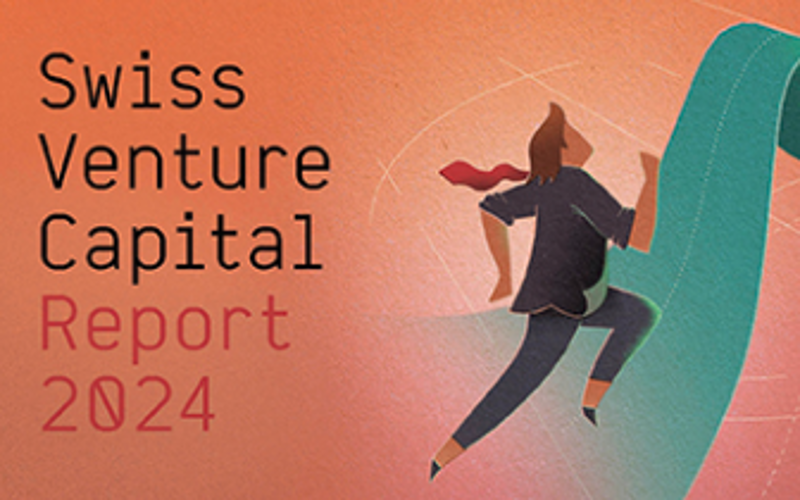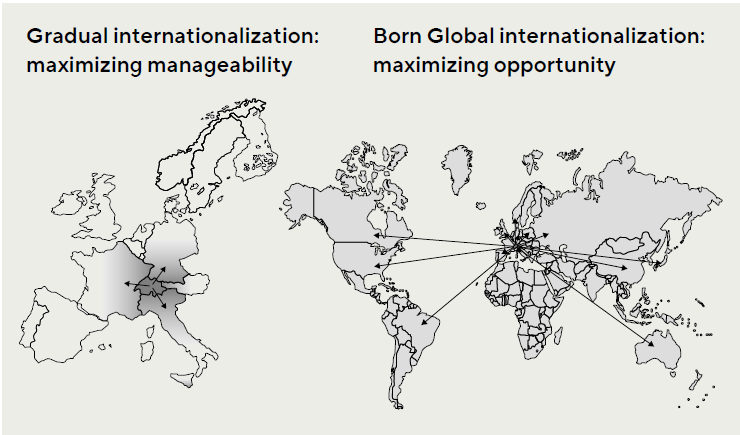27 févr. 2024
Born Globals are start-ups that operate in knowledge-intensive or high-tech markets in global niches. What they share is a star product, high ambition and a global vision.


They operate in foreign markets immediately at the onset of their business activity or shortly thereafter. In most cases, Born Globals are science and/or techbased start-ups, often from higher education networks and with founders and investors who have a global perspective and internationalization as a goal. Examples of Born Globals include Logitech and Spotify. Swiss Born Globals such as Logitech epitomize Switzerland’s innovation capability and have become impressive Swiss brand builders.
The playbook of rapid internationalization
Born Globals focus on relatively narrow market niches. Their entrepreneurs always have a strong international orientation, often speak several foreign languages and have international work experience and networks of contacts with potential sales intermediaries. The products are developed from the outset to different needs in different countries. The choice of markets is not a question of geographical location, but one of market potential. A Born Global enters the countries it considers to be lead markets for its products shortly after its inception. It is crucial for its development that it can quickly establish a functioning network of suppliers and market service partners.
SIES (Swiss International Entrepreneurship Survey): since 2007, the HEG-FR has been organizing a survey among international Swiss SMEs. The survey is conducted every three years with partners like SECO, SGE, Dun & Bradstreet, and partners from the financial sector.
In Switzerland, the Swiss International Entrepreneurship Survey (SIES) has shed light on Born Globals for several years and confirmed that between 18 – 20% of internationally active Swiss SMEs fall into this category – not only conceptually, but also empirically, as evidenced by their particularly fast internationalization speed and range: They operate in an average of 8.8 and 13 foreign markets after one and three years, respectively. Moreover, their internationalization quota is 19.1 additional markets on more than three continents, and their average foreign sales rate is more than 80%. The average international Swiss SME operates only on two continents and has a foreign sales rate of 56%.
Global mindset and ambition
Internationalization at this speed requires new and unique competencies in founders, entrepreneurs, and core management teams, mainly because products have short lifecycles and a high propensity for being copied or replaced by a foreign competitor. Founders, investors, and venture capitalists are under considerable pressure regarding return on investment, niche positioning, creation of global brand value, maintenance of first-mover advantage on a maximum number of markets as well as critical mass to stay viable.
Entrepreneurs and their management teams have a key role here, as they must ensure that these factors are integrated while the company continues to develop. Local activities should be approached with local expertise, and international activities ideally with international expertise. This is where an entrepreneur’s or a top management team’s international experience proves essential. Two-thirds of Born Global entrepreneurs have professional experience both abroad and in an international company, and one-third combine it with education abroad.
Prof. PhD Rico J. Baldegger
Local activities should be approached with local expertise, and international activities ideally with international expertise.